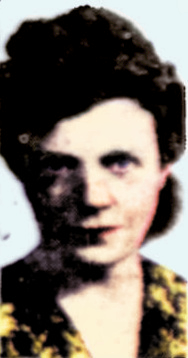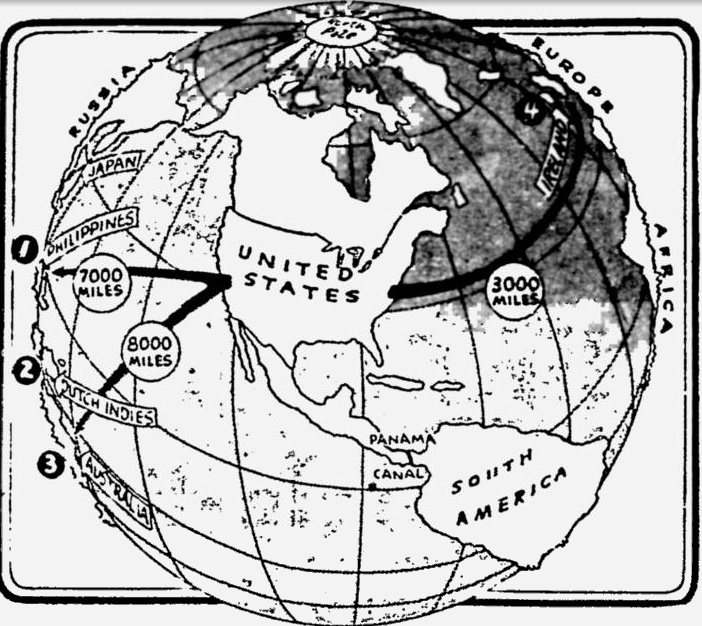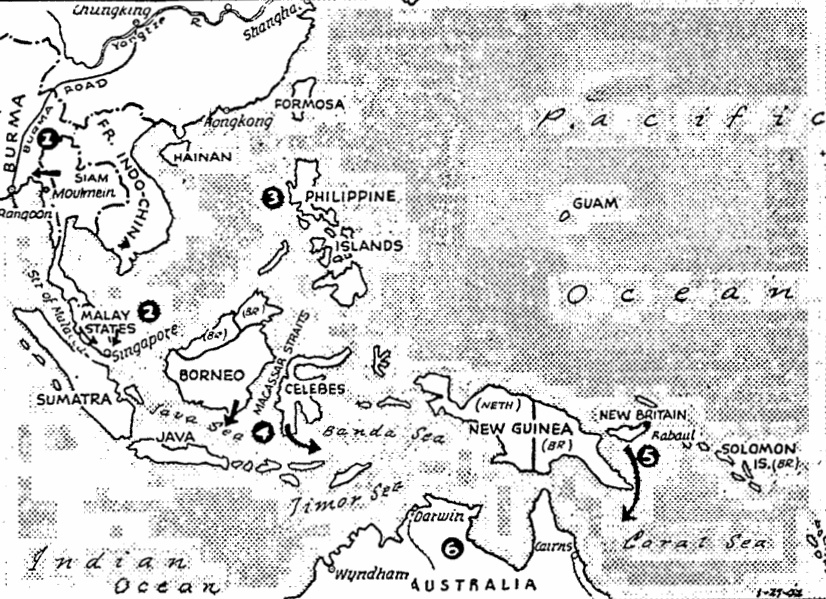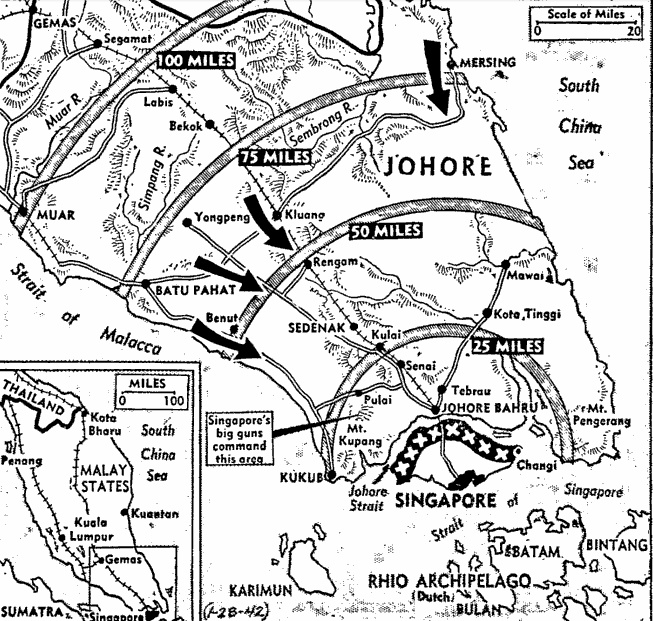
I DARE SAY —
Sauce for the gander
By Florence Fisher Parry
Out they go; disgraced; done.
Adm. Kimmel and Gen. Short.
Three thousand men dead who might have lived, And the spine of the Navy near broken.
Let no one soften. Let on one falter. The punishment must fit the crime.
Crime? Why, yes, what is negligence but crime?
So into the history books you go, gentlemen, and let no man spare its indictment.
But I say, if this is to be the portion of Adm. Kimmel and Gen. Short, we have declared ourselves impartial dispensers of justice. This is the punishment we mete to those who would play America false.
And declaring this to the world, we must go through with it. It must not end with Adm. Kimmel and Gen. Short.
WHO ELSE has failed?
WHO ELSE in high places?
These two men meant well.
They did not mean to betray their country. They were honorable men, vested with high authority, which they had earned by long years of devoted service. They had been given great positions of trust; their loyalty and patriotism were never doubted. They were SELECTED by men of judgment and experience, for their posts.
Their sins were sins of omission.
It was what they DIDN’T do that convicted them.
Others
All right, what about THESE OTHERS in high places – and not such high places – who have fumbled, who have failed, who are even now confusing the issue of victory just as truly as are these condemned men.
Let us face it. We have other failures to deal with.
Let us deal with them summarily then. Them too. Why shall we complete one distasteful job and shirk another?
Who is to say what crimes against defense were committed – in the name of labor – because we had a Secretary of Labor who meant well?
Yet the appointment – and withdrawal – of members of a cabinet are no more imperative to the country’s safety than the appointment – and withdrawal – of commanders of our armies and our fleets.
And there are lesser ones, and lesser issues, that could well be dealt with summarily, now that The example has been so severely said by our government, at last, it seems, in no mood to trifle.
This mood, now belatedly reflected in Washington, is the mood of America. It is an impatient and angry mood, brooking no nonsense. Once it rises in a people, it sets the temper of all; and none so mighty or so safe as can risk ignoring it.
We are in no mood for cuddling.
We are in no mood for groans of farmers and factory hands over one hour’s daylight saving.
We are in no mood for hoarders. What housewife would dare to confess that she holds so much as 10 pounds of sugar?
We are in no mood for tire thieves, Let their crime be a felony and get the maximum sentence.
We are in no mood for lame excuses from draft-age men, who seek a technical exemption. THIS war can place them somewhere.
We are in no mood for time-clock punchers who still argue wages and hours.
We are in no mood for the chiselers, big and little, who turn the war into a personal advantage.
We are in no mood for the tax-evader, who yesterday could brag of his “deductions.”
We are in no mood for armchair admirals among our idle friends. Let them WORK; there’s plenty of it, 12, 15 hours a day!
We are in no mood for the postmortems, the defeatist IFS and BUTS of the spilt-milkers, the BIDING-TIMERS who would deflect us from our determination to be unified under one purpose.
We are in no mood for soft spots anywhere.
Noblesse oblige
It’s not enough to mean well. It’s not enough to be sorry. It’s not enough to even stand and cheer. What was it Edith Cavell said? Patriotism is not enough.
We’re learning that now. After all these years. Only now.
Adm. Kimmel and Gen. Short, you taught us that lesson; perhaps you have earned from us an oblique kind of salute…
For you are… we, ourselves. As we were before Pearl Harbor. No more guilty, no more negligent, no more mistaken than we. The only difference lay in our rank… You were the rank… we were the file… But together, rank and file, we nearly lost America.
And there is one other difference between us: Although we woke up together, you to punishment and doom, we to sacrifice and danger, we are luckier than you. We are given a second chance.
You, Adm. Kimmel and Gen. Short, would not have muffed that second chance. Had it been given you, you would have turned it to glorious account.
But we were given the chance denied you.
It imposes a good deal upon us. It makes the whole thing pretty scared.
No wonder we’re in no mood for nonsense, of any kind, from anybody.
And when we see, from now on, anyone in a high place who should be REMOVED, we will remember you, Adm. Kimmel and Gen. Short; and we will brook no delay.



